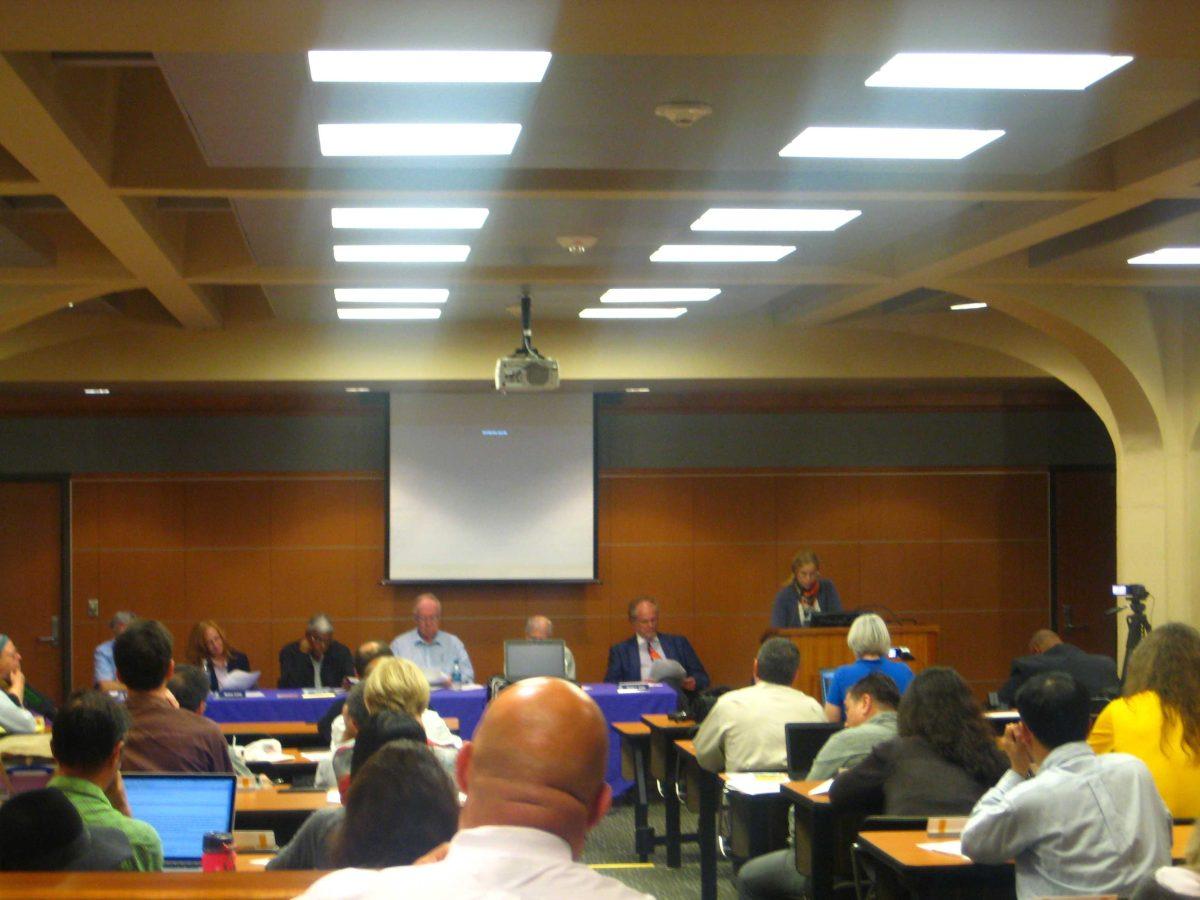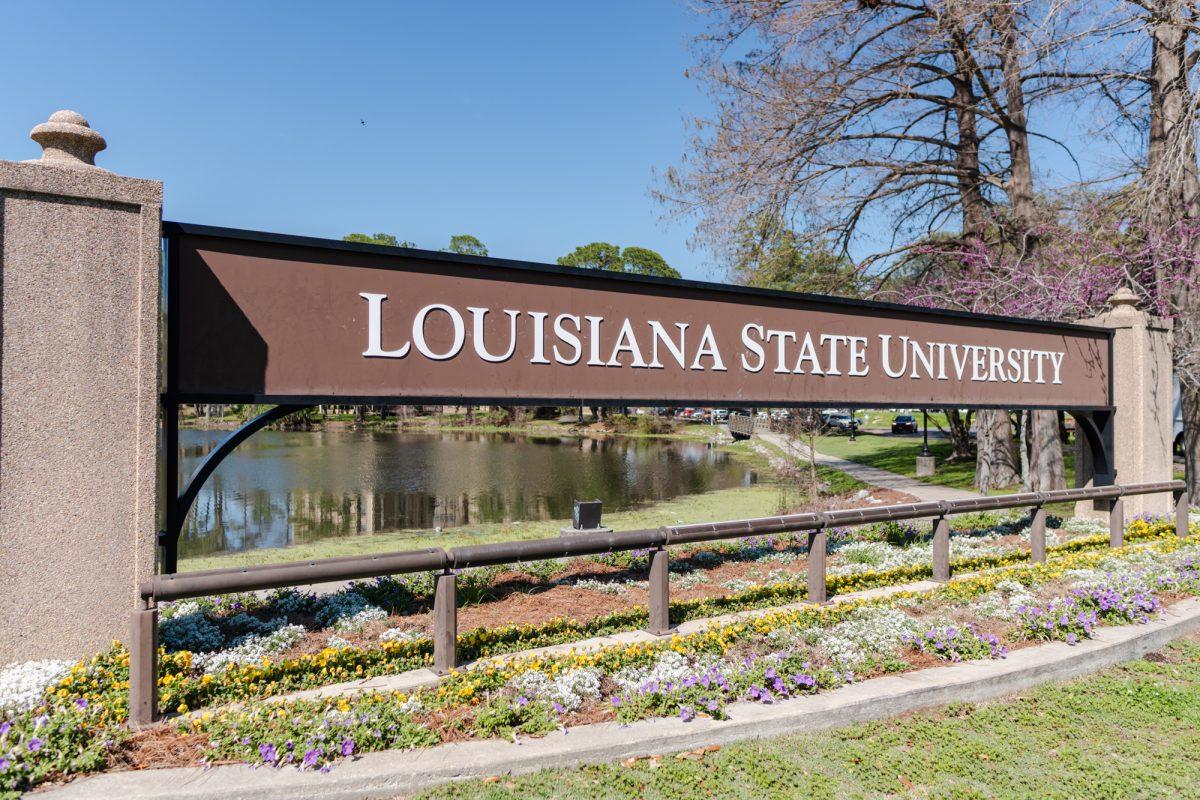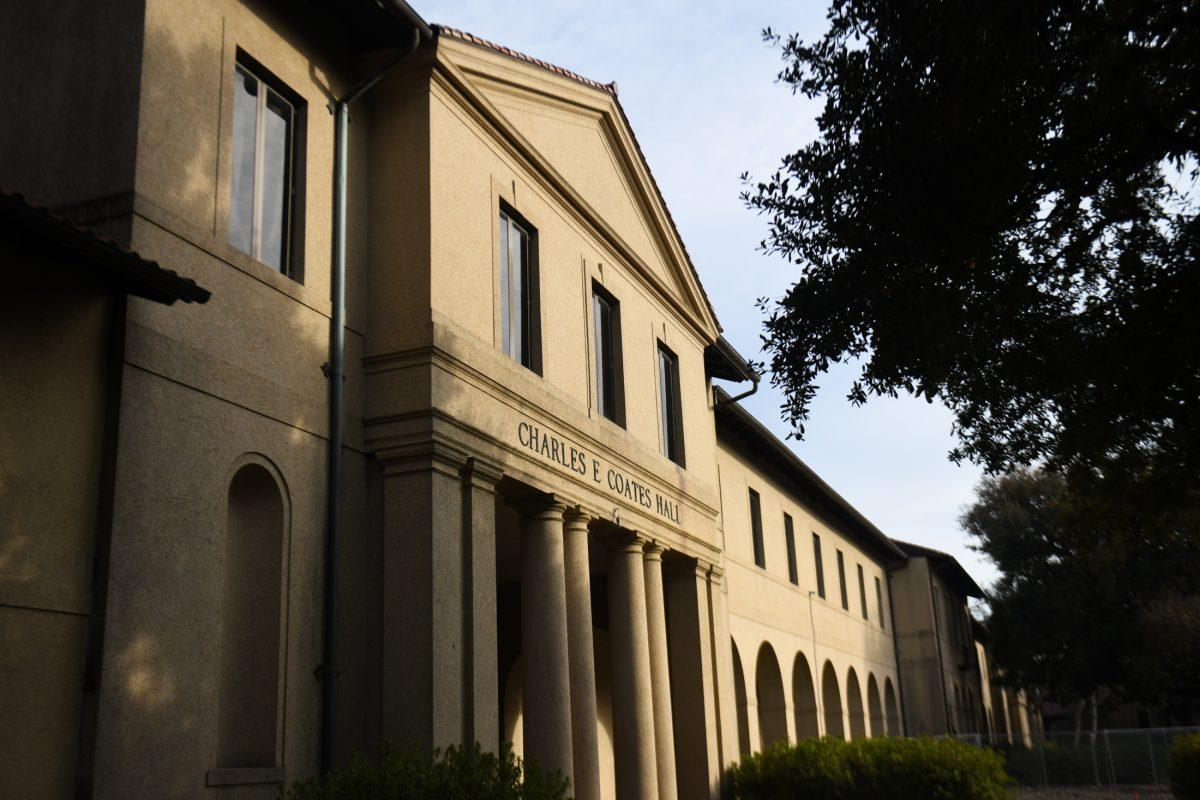The LSU Faculty Senate debated a “freedom of expression” resolution that would urge the administration to create a policy statement detailing free speech at the university, hours after former LSU professor Teresa Buchanan’s press conference announcing a lawsuit against LSU administrators over free speech issues Thursday morning.
Thirty-two faculty senators co-sponsored the resolution, titled “Freedom of Expression on Campus,” which was created by the University of Chicago and endorsed by Princeton University.
Political science professor James Stoner recalled bringing a “controversial” speaker to one of his classes last spring to give a speech titled, “Are Cops Racist?” which prompted “rigorous” but “civil” debate.
Stoner said an ensuing Daily Reveille article, quoted a student as saying, “the university shouldn’t invite people like this.”
Stoner said the incedent prompted him to write to the Reveille to emphasize the importance of both sides of the debate, as the experience informed his beliefs on the resolution, which he introduced to the Senate.
Theater professor Alan Sikes pointed to the firing of Buchanan and her resulting lawsuit as the “elephant in the room.”
“If I remember correctly,” Sikes said, “part of our discussion was that Dr. Buchanan was accused of using some sort of racy or suggestive language in the classroom…that somehow got linked to charges of harassment.”
Buchanan is represented by Foundation for Individual Rights in Education, a non-profit group dedicated to First Amendment rights, who called LSU’s decision to fire Buchanan a “fatal miscalculation” during the press conference in Baton Rouge.
The resolution, if approved by administrators, would explicitly protect free speech on campus, as long as the speech does not violate the law or interfere with the operation of the university.
Foreign languages and literatures assistant professor Gundela Hachmann pointed out that everyone already has those rights and asked Stoner why the resolution was necessary.
Stoner said he and other faculty members teach inherently controversial topics, and the measure would help protect freedom of expression on campus.
Education professor David Kirshner was the sole vocal opponent of the resolution, but communication studies assistant professor David Terry said it was vital to professors who teach controversial material.
“This is a matter of being able to do our jobs day-in and day-out,” Terry said.
Senators also debated a proposal, introduced by kinesiology associate professor Arend Van Gemmert, that would allow students to participate in graduation before completing all required courses, if their grades in previous semesters “suggest that they would graduate” and need a maximum of two more courses.
The proposal met stiff opposition from the Senate, although an initial vote affirmed the measure.
Van Gemmert said the proposal would reduce stress levels of both students and faculty resulting from families, especially of international students, planning trips months in advance, only to have their student miss graduation.
“It [is] very, very, very stressful, not just for the student, but for the faculty involved,” he said.
The Senate explored the option of having a “buffer semester,” where students would participate in graduation ceremonies an additional semester after they plan to graduate.
Faculty Senate discusses “freedom of expression,” graduation resolutions
By Sam Karlin
January 21, 2016
Faculty Senate holds its Nov. 9 meeting discussing the privatization of LSU’s Child Care Center.
More to Discover








